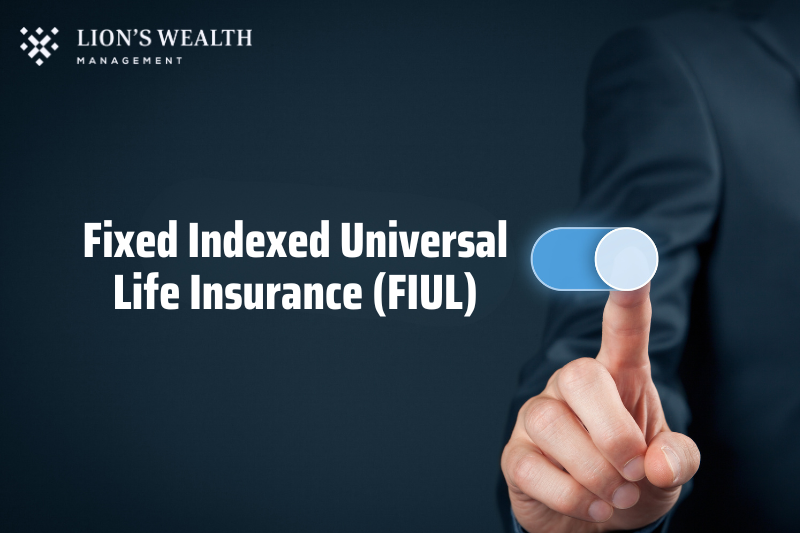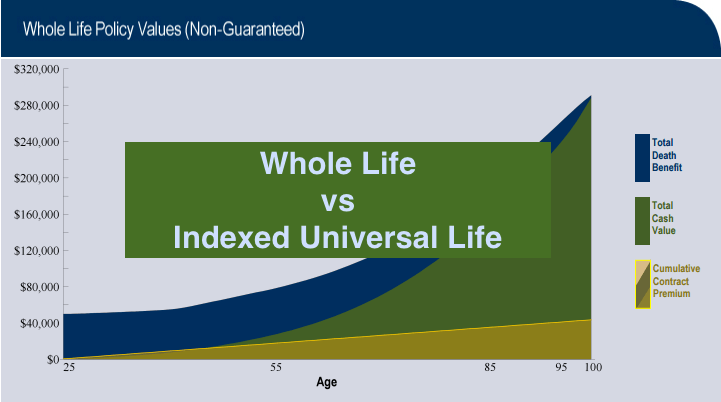All Categories
Featured
Table of Contents
Do they compare the IUL to something like the Vanguard Overall Stock Market Fund Admiral Shares with no tons, an expenditure ratio (EMERGENCY ROOM) of 5 basis factors, a turn over proportion of 4.3%, and a phenomenal tax-efficient document of distributions? No, they contrast it to some dreadful proactively handled fund with an 8% tons, a 2% ER, an 80% turnover proportion, and a terrible document of short-term resources gain circulations.
Common funds typically make yearly taxable circulations to fund owners, also when the value of their fund has actually gone down in value. Mutual funds not only call for income coverage (and the resulting annual taxation) when the mutual fund is increasing in value, but can likewise enforce earnings taxes in a year when the fund has dropped in worth.
That's not how common funds function. You can tax-manage the fund, harvesting losses and gains in order to minimize taxable distributions to the investors, yet that isn't somehow mosting likely to alter the reported return of the fund. Just Bernie Madoff kinds can do that. IULs prevent myriad tax obligation catches. The ownership of shared funds may call for the shared fund owner to pay projected taxes.

IULs are simple to place to make sure that, at the proprietor's fatality, the beneficiary is exempt to either revenue or inheritance tax. The exact same tax obligation decrease methods do not function almost also with shared funds. There are various, often costly, tax traps associated with the moment purchasing and selling of common fund shares, traps that do not put on indexed life insurance policy.
Possibilities aren't extremely high that you're going to be subject to the AMT due to your mutual fund circulations if you aren't without them. The rest of this one is half-truths at ideal. For example, while it is real that there is no revenue tax obligation as a result of your beneficiaries when they acquire the proceeds of your IUL policy, it is also real that there is no earnings tax obligation as a result of your beneficiaries when they inherit a mutual fund in a taxable account from you.
Columbus Life Iul
There are far better ways to prevent estate tax obligation concerns than purchasing financial investments with reduced returns. Common funds might create income tax of Social Safety advantages.

The growth within the IUL is tax-deferred and may be taken as free of tax revenue using loans. The plan proprietor (vs. the shared fund supervisor) is in control of his or her reportable earnings, thus enabling them to reduce and even eliminate the tax of their Social Security advantages. This is terrific.
Here's another very little concern. It's real if you get a common fund for claim $10 per share prior to the distribution day, and it distributes a $0.50 distribution, you are then going to owe tax obligations (most likely 7-10 cents per share) although that you have not yet had any gains.
In the end, it's truly concerning the after-tax return, not how much you pay in taxes. You are going to pay more in tax obligations by utilizing a taxable account than if you buy life insurance coverage. But you're additionally probably mosting likely to have more cash after paying those tax obligations. The record-keeping requirements for possessing mutual funds are significantly much more complex.
With an IUL, one's records are maintained by the insurance policy firm, duplicates of yearly declarations are mailed to the owner, and circulations (if any kind of) are completed and reported at year end. This one is likewise sort of silly. Naturally you need to maintain your tax records in case of an audit.
Survivorship Life Insurance Quote
Rarely a factor to acquire life insurance policy. Mutual funds are typically component of a decedent's probated estate.
Additionally, they are subject to the delays and expenses of probate. The earnings of the IUL policy, on the various other hand, is always a non-probate circulation that passes outside of probate straight to one's named recipients, and is as a result not subject to one's posthumous creditors, undesirable public disclosure, or similar delays and prices.
Medicaid disqualification and lifetime revenue. An IUL can offer their owners with a stream of income for their entire lifetime, regardless of just how long they live.

This is valuable when organizing one's affairs, and transforming possessions to revenue before an assisted living facility confinement. Mutual funds can not be transformed in a similar way, and are virtually always considered countable Medicaid properties. This is another silly one promoting that bad individuals (you recognize, the ones that need Medicaid, a government program for the inadequate, to pay for their assisted living home) need to make use of IUL instead of mutual funds.
Can I Cash Out My Universal Life Insurance Policy
And life insurance looks dreadful when contrasted fairly versus a retirement account. Second, people who have cash to purchase IUL above and past their retirement accounts are going to have to be terrible at handling money in order to ever before receive Medicaid to spend for their nursing home prices.
Chronic and terminal ailment rider. All plans will permit an owner's simple access to cash from their plan, typically forgoing any type of abandonment penalties when such individuals endure a significant illness, need at-home care, or come to be restricted to a nursing home. Shared funds do not supply a comparable waiver when contingent deferred sales charges still put on a mutual fund account whose proprietor requires to offer some shares to money the costs of such a stay.
What Is Index Life Insurance
You get to pay even more for that advantage (rider) with an insurance plan. Indexed universal life insurance gives death advantages to the beneficiaries of the IUL proprietors, and neither the proprietor neither the beneficiary can ever before lose money due to a down market.
Currently, ask on your own, do you in fact need or desire a fatality advantage? I certainly do not require one after I reach financial self-reliance. Do I want one? I suppose if it were economical sufficient. Naturally, it isn't low-cost. Usually, a buyer of life insurance policy pays for real cost of the life insurance policy advantage, plus the costs of the plan, plus the earnings of the insurance firm.
Life Insurance Tax Free Growth
I'm not completely certain why Mr. Morais included the entire "you can't shed cash" once again here as it was covered quite well in # 1. He just desired to duplicate the most effective selling factor for these things I expect. Once again, you do not shed small bucks, however you can shed real bucks, along with face major possibility expense because of low returns.

An indexed global life insurance coverage plan owner may trade their policy for a totally different policy without activating income taxes. A mutual fund proprietor can stagnate funds from one mutual fund company to an additional without offering his shares at the previous (therefore activating a taxed occasion), and buying brand-new shares at the latter, frequently based on sales costs at both.
While it is real that you can trade one insurance coverage for one more, the factor that individuals do this is that the initial one is such a terrible plan that also after acquiring a new one and experiencing the early, adverse return years, you'll still come out ahead. If they were marketed the best plan the very first time, they shouldn't have any type of wish to ever exchange it and experience the early, unfavorable return years once again.
Latest Posts
North American Universal Life Insurance
Best Universal Life Insurance
Variable Universal Life Insurance Quotes